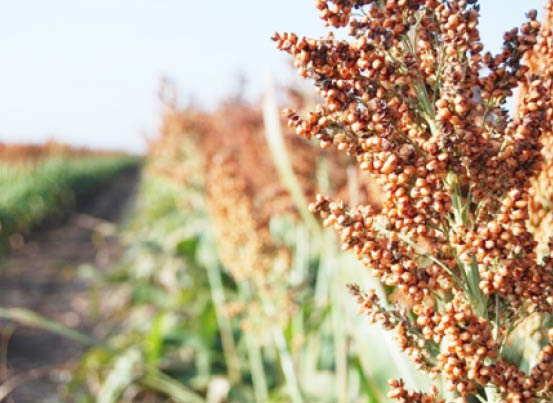Nigeria’s sorghum production fails to meet national demand – Agric Minister
Nigeria’s Minister for Agriculture and Food Security, Senator Abubakar Kyari, has revealed that Sorghum production in Nigeria has not met the national demand. The minister also attributed the nation’s inability to meet its sorghum demand to low productivity of the crop as some farmers still use grains for seeds. The minister made this known in […]

Sorghum is a significant crop cultivated in sub-Saharan Africa, with 300 million people depending on it
Nigeria’s Minister for Agriculture and Food Security, Senator Abubakar Kyari, has revealed that Sorghum production in Nigeria has not met the national demand. The minister also attributed the nation’s inability to meet its sorghum demand to low productivity of the crop as some farmers still use grains for seeds.
The minister made this known in Kano during a two-day training on technology transfer on sorghum community-based seed production for farmers in sorghum producing states organised by the ministry in collaboration with International Crops Research Institute for the Semi-Arid Tropics (ICRISAT).
Represented by the NorthWest zonal director of the ministry, Mr. Musa Raji, the minister revealed that it is worthy to note that sorghum is one of the two major grain crops produced in the semi-arid regions of Africa, and Nigeria is the highest producer and second in the world ranking, adding that with the development, there is a great need for improvement in sorghum production hence the training for farmers to produce their seeds under expert’s supervision.
In his remark, national president of Sorghum/Millet Farmers Association of Nigeria Alhaji Yusuf Adams stated that aside the use of grains as seeds, sorghum farmers are facing a serious threat due to the insecurity in most of the sorghum producing states, but with the newly adopted technologies and sustainable security, farmers will meet up with the national demand of sorghum.
Earlier in his address, ICRISAT Country Representative, Dr Angarawai Ignatius, stated that the institute had conducted several trainings to community seed producers to address the issue of using grains as seeds, adding that the move by the ministry is a timely one which will address sorghum production along the value chain.
